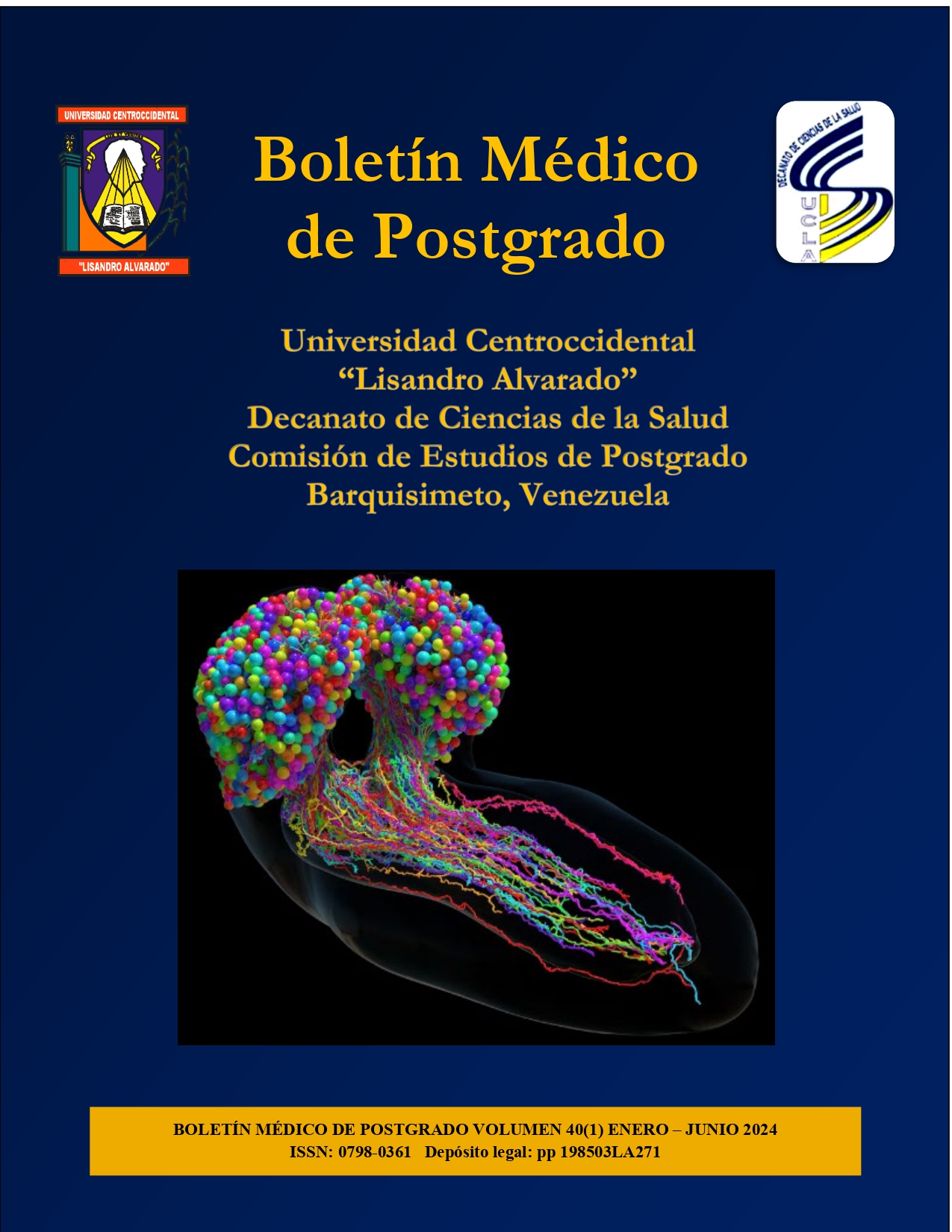The training of the physician-teacher for the university educational practice, a hermeneutic look beyond schooling
Abstract
University teacher training should encourage the search for a new approach in teaching that emphasizes thinking while promoting epistemological links that contribute to a transdisciplinary conception that raises the idea of training based on the research process, rescuing the idea of the subject as an expression of sensitivity. For this reason, the purpose of this research was to generate a theoretical reflection on the training of the teaching physician for university educational practice. An in-depth interview was used as a strategy to obtain the key informants' version, applied to three medical social actors with teaching functions belonging to the Dean's Office of Health Sciences-UCLA. For its interpretation, it was systematized in order to codify and categorize it, through a categorical synthesis and triangulation. The credibility of the knowledge was cemented through the confidence in the interpretations made to the narrative of the social actors, through the systematic return or return to them, which accounted for the legitimacy to subsequently make the final reflections. This paradigm made it possible to study the phenomenon, as an act of consciousness based on experiences, in a scientific environment and to generate theoretical reflections for the evaluation of the training of doctors-teachers at UCLA/DCS.
Downloads
References
Ugas J. La Complejidad: Un Modo de Pensar. Ediciones del Taller Permanente de Estudios Epistemológicos en Ciencias Sociales. Táchira. Venezuela; 2008.
Díaz Monsalve AE, Quiroz Posada RE. La formación integral: Una aproximación desde la investigación. Íkala 2013; 18(3): 17-29.
Sánchez MA. La investigación sobre el desarrollo y la enseñanza de las habilidades de pensamiento. Revista Electrónica de Investigación Educativa 2002; 4(1).
Guzmán EL, Solarte BE. Una Mira a la Formación del Docente Universitaria. Docencia Investigación Innovación 2013; 3(3): 21-45.
Zabalza MA. Competencias docentes del profesorado universitaria. Calidad y desarrollo profesional. Narcea, España; 2003.
Moreno M. Historias de Vida e Investigación. Colección Convivium Minor Nº 2. Centro de Investigaciones Populares. Caracas. Venezuela; 2002.
Hurtado I, Toro J. Paradigmas y Métodos de Investigación en Tiempos de Cambios. Valencia; 2001.
Valles C. Codificación Abierta con Categorías Emergentes. Editorial Alianza Métodos y Técnicas de Investigación. Madrid; 2000.
deKetele JM. Observar para educar: observación y evaluación en la práctica educativa. Visor. Madrid; 1984.
Benney M. La Entrevista es la Herramienta de Excavar Favorita. Bilbao: Ediciones Mensajero; 1970.
Taylor B. Investigación Flexible desde una Perspectiva Holística. Electronic Journal of Research in Educational Psychology Editorial Paidos. México; 1992.
Panza N. El Liderazgo del Docente Universitario en la Sociedad del Conocimiento. Más Allá de los Significados. Universidad Fermín Toro. Venezuela; 2007.
Martínez M. Enfoque Cualitativo Método Etnográfico de la Investigación. Editorial Trillas México; 2008.
Published
How to Cite
Issue
Section

This work is licensed under a Creative Commons Attribution-NonCommercial-ShareAlike 4.0 International License.
Las opiniones expresadas por los autores no necesariamente reflejan la postura del editor de la publicación ni de la UCLA. Se autoriza la reproducción total o parcial de los textos aquí publicados, siempre y cuando se cite la fuente completa y la dirección electrónica de esta revista. Los autores(as) tienen el derecho de utilizar sus artículos para cualquier propósito siempre y cuando se realice sin fines de lucro. Los autores(as) pueden publicar en internet o cualquier otro medio la versión final aprobada de su trabajo, luego que esta ha sido publicada en esta revista.



